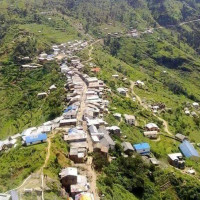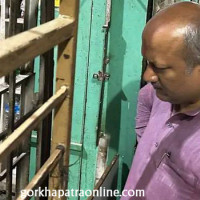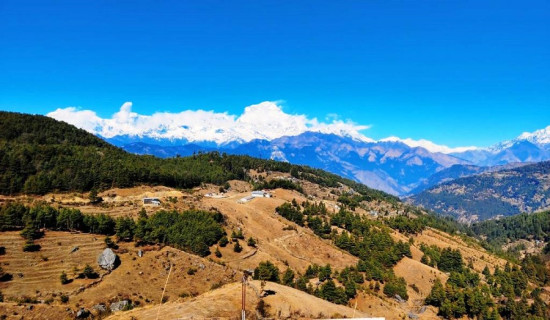- Friday, 18 April 2025
Community seed banks in sorry state
By Hari Prasad Koirala,Urlabari, Apr. 9: Due to neglect by government agencies, community seed banks in Koshi Province have reached a state of non-operation.
Before the state restructuring, community seed banks, which were operating under the monitoring, regulation and support of the Crop Development Directorate of the Ministry of Agriculture, are currently placed under the monitoring and regulation of Centre for Crop Development and Agro-Biodiversity Conservation under the Ministry of Agriculture and Livestock.
According to Keshab Devkota, chief of the Centre, the government had established the community seed bank with the aim of preserving indigenous crop seeds.
He said that the government is to blame for the failure to operate community seed banks when indigenous crops are of great importance for food and nutrition security.
He said, "Out of 125 registered seed banks, 25 are fully operational. Of these, only 30 are registered with the Community Seed Bank Association Nepal."
The federal government was preparing to make a programme for the continuous operation of the community seed bank. The Association decided that this programme should be given to the provincial and local levels, saying that the results would be better if the local and provincial governments operated it.
Devkota, however, said that the provincial and local governments have not shown much interest.
"If the community seed bank is closed, then a day may come to search our local crops, including Kaguno, Chino, buckwheat, maize, wheat and millet on Google," he said.
There are 12 community seed banks in Koshi Province. Two of them have already closed. The remaining 10 are also waiting for the government budget for its proper operation.
Mina Koirala, chairperson of Hamro Community Seed Bank in Katari Municiplaity-6, Udayapur, said that last year, they produced seeds of verities of paddy seeds, including Sukha-3, Ramdhan, Hardinath-6 and Sama Mansuli in 8 bighas of land.
The demand for our products is high in the market, she said. However, farmers do not have the capital to invest.
Koirala said that 180 farmers are active in seed production with the technical assistance of JICA and financial assistance of Rs. 1.9 million from the Agricultural Knowledge Centre.
She said that although the seeds are sold at a high price, they have not been able to earn income according to their hard work.
The Shivagunj Community Seed Bank of Shivasatakshi Municipality in Jhapa is producing seeds of paddy, beans, maize, pumpkin, bottle gourd, mustard and among others.
Chairman of Shivagunj Community Seed Bank Januka Magar said, "We are dependent on India for all kinds of seeds. We are growing indigenous seeds. However, there is no government support."
"The municipality had given Rs. 235,000 as 50 per cent subsidy for producing local seeds. The farmers do not have the money to add that Rs. 235,000," she said.
Magar said that the farmers have the capacity to produce quality seeds if the government provides support.








-square-thumb.jpg)







